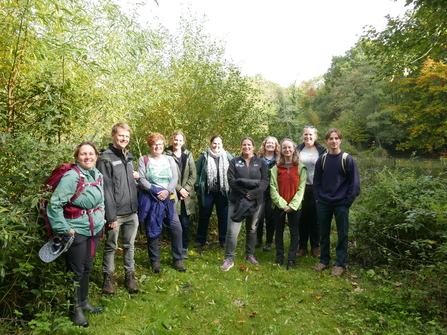Instinctively we know the benefit that nature has for our health. The physical and mental benefits, the benefits to child development, and the benefits to the health and happiness of our communities. Research and policy at national level have begun to confirm this instinct, demonstrating the positive impact nature can have on the health of our entire population, reducing health inequities and tackling complex challenges like social isolation. However, when talking about nature recovery, the link to health often remains unsaid.
So let me share with you why I think we should be paying more attention to this link. and why focusing on health in the battle for nature can have a formidable impact.
First, let’s take stock, the pressure on our NHS continues to increase. Like the environmental crisis, the health of our nation is at a tipping point, facing looming threats that include a mental health crisis, increasing prevalence of long-term conditions, and widening health inequalities. With health and nature being so interlinked, decisions that prioritise lasting change and positive outcomes for both seem not just advisable, but essential. I work for NHS Hampshire and Isle of Wight and recently spent two months working alongside the community and engagement team at Hampshire and Isle of Wight Wildlife Trust looking at the impact that they have on people's health. Here’s what we found.
We started by speaking to the public and one thing was clear from the start - consciously or unconsciously, people use the Trust's sites for their health. Whether for exercise, detox, relaxation, mental stimulation, alleviating anxiety or boosting mood, the bottom line was that people wouldn't use these sites if they didn't feel better from doing so.
We also witnessed the huge impact nature has on children's health. School trips at the Trust's sites and initiatives like Forest School were shining beacons for the power of nature to positively impact confidence, self-esteem and mood. I heard countless stories of children who often struggle to engage in education, finding ways to do so through nature. It’ll come as no surprise that we saw an equally powerful, knock-on impact on parents. Using interactions with nature to connect with their children and socialise with other parents.


